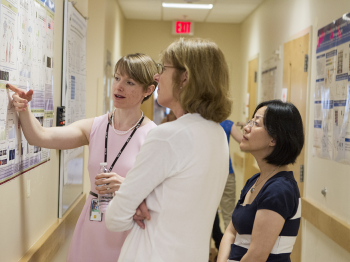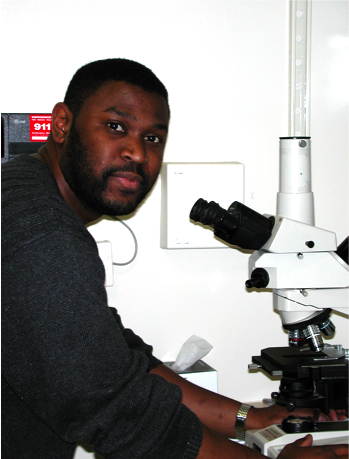- Predoctoral training at CCR
- Post-baccalaureate training at CCR
- Application Details for Post-baccalaureate Positions
Post-baccalaureate CRTA fellows in the POB:
The Pediatric Oncology Branch provides a stimulating and nurturing environment for individuals who have recently completed baccalaureate degrees and are seeking an opportunity to engage in biomedical research for 1-2 years prior to graduate school. Post-baccalaureate CRTAs (Cancer Research Training Awardees) working in the Pediatric Oncology Branch are mentored by a Principal Investigator, and work closely with scientific teams that include senior research fellows, biologists, clinical fellows and staff scientists. Depending upon which research team they work with, studies could involve genomics, animal models, immunology, cancer biology, signal transduction, cancer imaging or drug development. Post-baccalaureate CRTAs participate in the Pediatric Oncology Branch Research Seminar Series, the POB Annual Research Roundup, the NIH Postbac Poster Day, journal clubs, lab meetings and NIH sponsored training sessions. POB post-baccalaureate fellows routinely go on to receive graduate degrees in medicine, science or other fields.
Post-bac Alumni Spotlight: Dr. Jerry Jaboin, Assistant Professor, Radiation Oncology, Washington University, St. Louis.
After 2 years in medical school Jerry Jaboin joined the Cell & Molecular Biology Section of the POB in 1998 to “see” if he was really interested in research. He had never worked in a biomedical research lab. He was a natural. After 1 year he applied and was accepted into Howard University’s Medical Science Training Program. He spent 3 years at the bench and published 5 papers that served as the backbone of his thesis at Howard University. He received his MD and PhD in 2004.
When asked, “What was the most important thing you learned during your PhD studies?" Jerry replied “Organization, organization, organization… This was my mentor’s mantra, and it is the single most important lesson I’ve taken to heart from my doctoral studies. With this approach, you maximize efficiency, effort and research results.”
Jerry completed his residency at Vanderbilt University in Radiation Oncology and is currently an Assistant Professor, Radiation Oncology at Washington University, St. Louis. When he looked back on his experience at the POB/NCI, Jerry reminisced, “My time at POB/NCI has greatly impacted my research career and trajectory. In the POB/NCI, there were sources of mentorship and guidance everywhere. There were clinicians, clinician-scientists, scientists, technicians and every form of trainee imaginable, and so, every example of “success in science” was represented. In addition, there were continually programs bringing great scientific minds to the campus to discuss their research, and share advice for our future development. I look back fondly on those days at the NCI, and will take what I have learned at the POB with me for the span of my career.”

